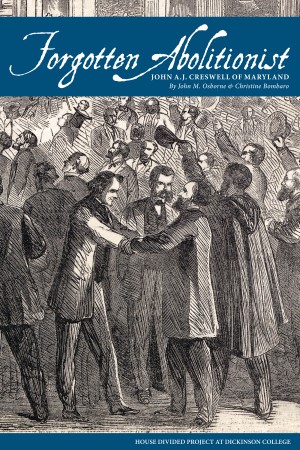Here is where we post multi-media features designed to help tell the story of emancipation in ways most appropriate for different educational levels. We are busy creating interactive textbooks, videos, podcasts and other digital resources that might help improve classroom instruction on 19th-century topics such as emancipation by engaging students with cutting-edge 21st-century tools.
The Unofficial Teacher’s Guide To Spielberg’s Lincoln
Our teacher’s guide to Steven Spielberg’s “Lincoln” (2012) movie, includes a scene-by-scene summary with access to Tony Kushner’s full script, a photo comparison of the actors with their corresponding historical figures, summaries of the historical reaction to the movie, an extensive analysis of artistic license in the film, and a variety of tools for further online research into Abraham Lincoln.
“Henry W. Spradley, Citizen” (2011), by Colin Macfarlane (Dickinson College, ’12)
This fascinating student-produced documentary short film (14 minutes) explores the story of a runaway slave from Virginia who became a Union soldier during the Civil War and later a beloved employee at Dickinson College only to have his grave bull-dozed over during the 1970s. Make sure to check out the research journal behind-the-story here.
“Daniel Anthony of Kansas,” (2012) by Taylor Bye (Dickinson College, ’12)
This student-produced web exhibit tells the story of Daniel Anthony, a Union army officer who faced court-martial in 1862 because he had emancipated slaves against the direct orders of his commanding officer. Anthony was an officer in the famous 7th Kansas Cavalry (“Jennison’s Jayhawkers”). He was also the younger brother of renowned feminist Susan B. Anthony. Ultimately, the 37th Congress intervened to help protect Anthony in July 1862.
“Myth of Rivals,” (2008) op-ed by Matthew Pinsker
This Los Angeles Times op-ed by Matthew Pinsker originally appeared on November 18, 2008 but has since been transformed for the classroom into an interactive, teachable text that allows students to see the primary sources for themselves. The subject concerns an argument over how to interpret President Lincoln’s relationship with his Cabinet. Pinsker challenges the view popularized by Doris Kearns Goodwin that by the time of the emancipation decision, Lincoln had forged a successful “team of rivals.” Click here to view interactive essay. In 2008, James Oakes also wrote an op-ed about this topic for the New York Times. You can read his equally feisty piece here.
“Limits of Presidential War Powers,” (2009) essay / lecture by Matthew Pinsker
This essay by Matthew Pinsker originally appeared in the American Bar Association’s magazine for teachers and concerns Abraham Lincoln’s approach to presidential war powers. Pinsker argues in the essay and a series of videotaped lectures from 2009 (delivered at the Templeton Honors College of Eastern University) that although Lincoln claimed vast initiative as Commander in Chief (on issues such as emancipation), he also accepted real limits on his powers under his understanding of international law and the doctrine of popular sovereignty. Click here to access both essay and videos.
Textbook Excerpts
Here we are collecting various excerpts on emancipation from textbooks throughout American history. See this passage on abolitionists, for example, from an early post-Civil War textbook.

